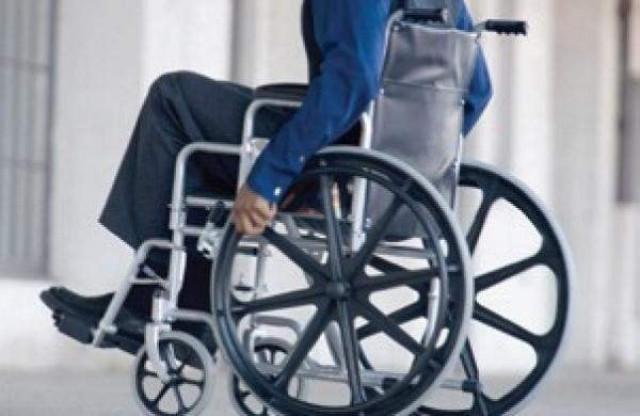No country for the disabled
Forget about privilege, one shouldn’t even expect to be treated like an ordinary Pakistani if one has a disability

The other day I had to visit Gerry’s at Bahria Complex IV under the Gizri bridge for a visa query. My car (a Corolla) stopped at the gate and we asked to be let in so that I could be dropped off.
One guard, seeing my cane, perhaps felt a smidgeon of sympathy. He walked to the other guard and asked to lift the barrier but his response was no.
My driver tried to reason with them that I was unable to navigate the bumpy terrain or the traffic on the main road.
He promised he would drive right out after dropping me off but the guards were unmoved.
Resigned, I got off on the road, and helped by my sister, made my way in.
As I was walking in, I saw an SUV drive in and a couple get out and make their way into Gerry’s.
My sister was understandably furious on my behalf. Upon enquiry, there was no legitimate reason for their vehicle being allowed in so I surmised that they must have pulled some strings or used “protocol”.
This came as no surprise, but I figured it is perhaps time to question why? Why have I become indifferent to my own plight and the plight of many others like me? Why am I satisfied with the way things are? And why things are the way they are?
Read more: Pakistani people with disabilities
It’s become a national past time to malign politicians for using protocol and getting VIP treatment. But maybe there’s a reason for that.
Having never used it, I feel now that I may be wrong. But for me, it’s a matter of principle. Why should I have to call someone to be allowed access? To get “special” treatment? To be treated with basic human dignity?
So I don’t. I don’t make the call. I don’t flash the card. I don’t give the name. Because as a polio survivor, I am used to being a first-class citizen across the world.
Doors are held open, cars allowed in, queues broken, all to facilitate me. It is only in my own country that I am made to feel like a second or even third-class citizen.
Take my work place for instance. Parliament of Pakistan. The custodian of laws and freedoms. Where the tiles are so slippery that navigating them is like playing Russian roulette with your bones. And for six years, I’ve been trying to fix that but haven’t been able to do so. Because it’s just not important enough. The tiles need to shine – walking be damned.
In Pakistan, I have to think twice, maybe thrice, before making plans. Venturing out. Running the most mundane of errands. No dedicated lines, no accessibility, and if I’m in my wheelchair, you can bet on the fact that I will not be spoken to.
All questions or statements will be directed towards my attendant. You’d think my comprehension skills were housed in my legs. Forget about privilege, one shouldn’t even expect to be treated like an ordinary Pakistani if one has a disability.
Today, I would like to ask why. Why don’t we, as a nation, give a damn about disabilities? It doesn’t cost extra. Having less shiny tiles, or a usable ramp, or a separate line that others don’t cut into – none of this costs. So why don’t we do it? Why the deep seated apathy towards the disabled? I would like to ask the management of Bahria Complex and of Gerry’s as to why a cane and an obvious walking disability doesn’t get you entrance but a phone call does. And no, this isn’t something we can blame on the politicians or the government. This is on all of us, as a nation, collectively not caring. And while most of us don’t want to acknowledge this deeply uncomfortable truth, it remains a truth undeniable.
Senator Quratulain Marri (@Anny_Marri)

















COMMENTS
Comments are moderated and generally will be posted if they are on-topic and not abusive.
For more information, please see our Comments FAQ